Foreign News
Japan voting for new leader in shadow of scandals
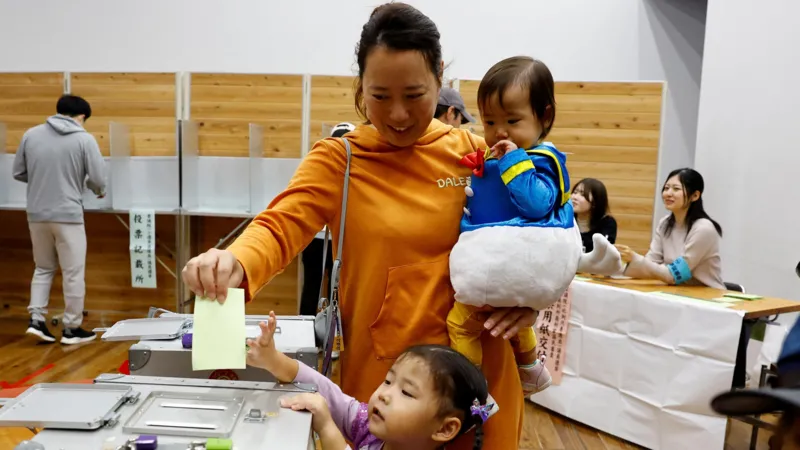
Japanese voters are today heading to the polls in a snap election, following a tumultuous few years for the ruling party which saw a “cascade” of scandals, widespread voter apathy and record-low approval ratings.
The election was announced by Shigeru Ishiba three days after he was selected as the leader of the ruling Liberal Democratic Party (LDP) – before he had been officially sworn in as prime minister.
The decision was made despite the LDP seeing approval ratings of below 20% earlier in the year, in the wake of a political fundraising corruption scandal.
Yet the LDP still remains the strongest contender against opposition parties which have failed to unite, or convince voters they are a viable option to govern.
The main opposition party had an approval rating of just 6.6% before parliament was dissolved.
“It is so hard to make decisions to choose parties, I think people are losing interest,” Miyuki Fujisaki, a long-time LDP supporter who works in the care-home sector, told the BBC ahead of polls opening.
The LDP, she said, has its problems with alleged corruption, “but the opposition also does not stand out at all”.
“They sure complain a lot, but it’s not at all clear on what they want to do,” the 66-year-old said.
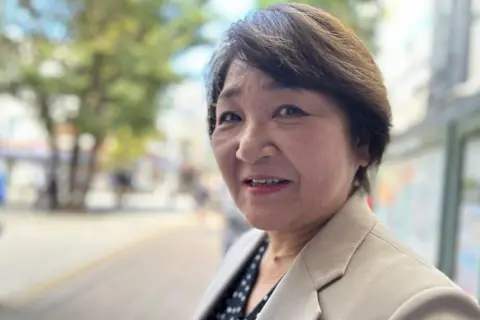
For all the apathy, politics in Japan has been moving at a fast pace in recent months.
Shigern Ishiba took over as prime minister after being voted in by the ruling party following his predecessor Fumio Kishida – who had been in the role since 2021 – making a surprise decision to step down in August.
The move to call the election came at a time when the LDP is desperate to restore its tarnished image among the public. Ishiba – a long-time politician who previously served as defence minister – has described it as the “people’s verdict”.
But whether it’s enough to restore trust in the LDP – which has been in power almost continuously since 1955 – is uncertain.
A series of scandals has tarnished the ruling party’s reputation. Chief among them is the party’s relationship with the controversial Unification Church – described by critics as a “cult” – and the level of influence it had on lawmakers.
Then came the revelations of the political funding corruption scandal. Japan’s prosecutors have been investigating dozens of LDP lawmakers accused of pocketing proceeds from political fundraising events. Those allegations – running into the millions of dollars – led to the dissolution of powerful factions, the backbone of its internal party politics.
“What a wretched state the ruling party is in,” said Michiko Hamada, who had travelled to Urawa station, on outskirts of Tokyo, for an opposition campaign rally.
“That is what I feel most. It is tax evasion and it’s unforgivable.”
It strikes her as particularly egregious at a time when people in Japan are struggling with high prices. Wages have not changed for three decades – dubbed “the lost 30 years” – but prices have risen at the fastest rate in nearly half a century in the last two years.
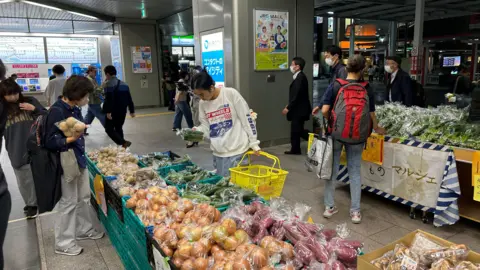
This month, as voters were getting ready to go to the polls, saw more price hikes on thousands of food products as well as other day-to-day provisions like mail, pharmaceuticals, electricity and gas.
“I pay 10,000 yen or 20,000 yen ($65 – $130; £50 – £100) more for the food per month than I used to,” Ms Hamada said. “And I’m not buying the things I used to buy. I am trying to save up but it still costs more. Things like fruit are very expensive.”
She is not the only one concerned with high prices. Pensioner Chie Shimizu says she now must work part-time to make ends meet.
“Our hourly wage has gone up a bit but it does not match the prices,” she told the BBC as she picked up some food from a stand at Urawa station. “I come to places like this to find something cheaper and good because everything in regular shops is expensive.”
Ms Shimizu has not voted for years but might this time – although she is not sure which candidate or which party to vote for.
“I can’t find anyone that I want to vote for. I feel like there’s no one who I can trust to be our leader. I wonder about those who become an MP for their own greed.”
Against this backdrop, it might look like Ishiba has taken a political gamble. His party had held 247 of 465 seats in the lower house, while its coalition partner, Komeito, had 32. A party needs 233 seats to control the house, known as the Diet.
There are now fears Komeito may fail to reach that number again, while the main opposition – which had 98 seats in the previous parliament – began to pick up momentum with voters ahead of Sunday’s election.
“I think the LDP has dug itself a very deep hole to climb out of. It does not enjoy public trust, and why should it? There’s just been a cascade of scandals,” Jeff Kingston, professor of Asian studies and history at Temple University Japan, told the BBC.
But he does not think any of this will necessarily lead to the party losing the elections.
“I think they (LDP) are worried they’re going to lose some marginal seats, and there are questions hanging over Komeito and how effective a coalition partner they will be,” Prof Kingston said.
Should they pull off a win, Miyuki Fujisaki, the care-home sector worker, warns they will have to do more than just pay lip service to change.
“I want them to show us what they are going to do so this [the scandals] doesn’t happen again,” she said. “They need to prove it – not just say it like they often do in the election time.”
[BBC]
Foreign News
Mozambique’s ruling party wins landslide in disputed poll
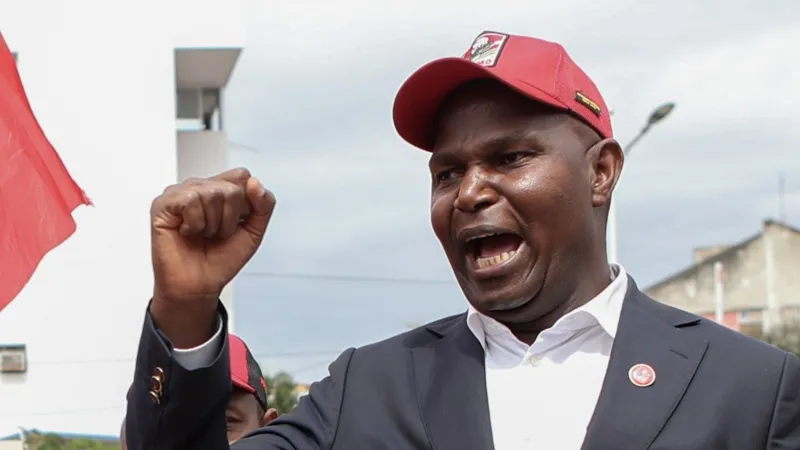
Mozambique’s ruling party, Frelimo, has won the country’s divisive, violence-marred election, extending its 49-year grip on power in the southern African nation, according to official results.
Daniel Chapo, Frelimo’s relatively unknown presidential candidate, seen as an agent of change, will replace Filipe Nyusi, who has served two terms.
At 47, Chapo, who gained 71% of the vote, will be the first president born after independence in 1975. His closest challenger, Venancio Mondlane got 20%.
Chapo said in his victory speech: “We remained silent all this time, for respecting the law. We are an organised party that prepares its victories.”
Following the announcement of the result, there have been violent protests in several towns and a number of people have been killed. There is also heavy police presence in some areas.
The election has been marred by allegations of rigging and the killing of opposition supporters, prompting protests across the country.
Zimbabwe’s President Mnangagwa, who has also been hit by allegations of election fraud over the years, prematurely congratulated Chapo on his “resounding victory”, even before the results were announced.
Ossufo Momade, the candidate of former rebel group Renamo, which was previously the main opposition party, came in third with 6%.
Political analyst Tomas Viera Mario told the BBC that Renamo had lost its “historical position” because Momade, 68, had failed to attract young voters.
The numbers announced surprised all voters, including some members and sympathisers of the ruling party, especially Frelimo’s landslide victory.
The deputy chairperson of the electoral commission Fernando Mazanga, who was appointed by Renamo, said the “results are against electoral justice”.
“These results do not represent the reality,” he said.
The electoral commission says 43% of the more than 17 million registered voters took part in the poll.
Parliamentary and provincial elections were held at the same time as the presidential vote.
Frelimo won 195 of the 250 seats in parliament. The opposition Podemos, which backed Mondlane for president, got 31 seats and Renamo secured 20 seats.
Frelimo also won all the provincial elections.
President Nyusi followed the election results with a jubilant television address to the nation. “With more than 70% of the votes, I don’t see any teacher failing a student,” he said.
The election had been seen as a turning-point for the resource-rich country which is wracked by economic problems, corruption, and poverty.
Mondlane had called for a national strike on Thursday in protest at the alleged rigging.
He said that the protests would honour his lawyer and a party official who were shot dead last week in what he described as politically motivated killings.
He claimed that he won the election despite preliminary polls showing that Chapo was well ahead.
Mondlane now has until December to contest the results.
On Monday, he organised nationwide demonstrations, which were dispersed by police firing live rounds and tear gas.
The election has also been criticised by EU election observers, who said some results may have been doctored.
They said there were “irregularities during counting and unjustified alteration of election results”.
Political analyst Adriano Nuvunga decried what he called a pattern of fraudulent elections in Mozambique.
The electoral commission has declined to comment on allegations of vote-rigging, according to Reuters.
Chapo will be sworn into office in January.
[BBC]
Foreign News
Pakistan ex-PM Imran Khan’s wife, Bushra Bibi, released from prison
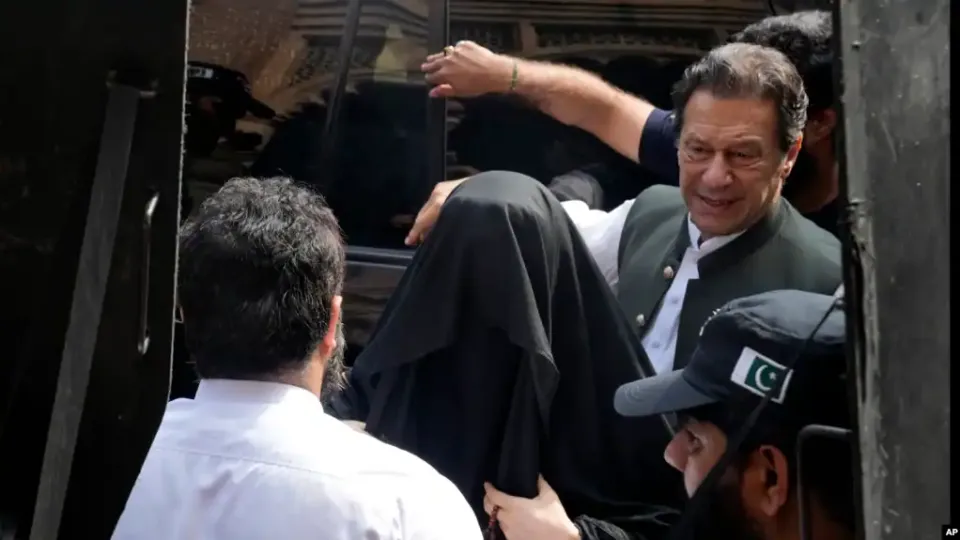
Bushra Bibi, the wife of Pakistan’s former Prime Minister Imran Khan, has been released from prison nearly nine months after the couple was sentenced in a case linked to the illegal sale of state gifts.
Bibi was released from Adiala jail in the garrison city of Rawalpindi on Thursday after being granted bail the previous day by the Islamabad High Court, Naeem Haider Panjutha, a lawyer for Khan’s Pakistan Tehreek-e-Insaf (PTI) party, confirmed to Al Jazeera.
Both Bibi and Khan were sentenced to 14 years in jail in January after being found guilty on multiple charges of retaining and selling state gifts in violation of government rules.
A court ruled that the couple had illegally sold gifts worth more than 140 million rupees ($505,000) received during Khan’s 2018-2022 premiership from a state treasurey known as the Toshakhana or treasure house.
The Khans deny the charges and say they were trumped up by the government to victimise the 72-year-old former cricket star, who has faced dozens of cases since he was removed as prime minister in 2022.
[Aljazeera]
Foreign News
Lee Hsien Yang, youngest son of Singapore founder, claims asylum in the UK
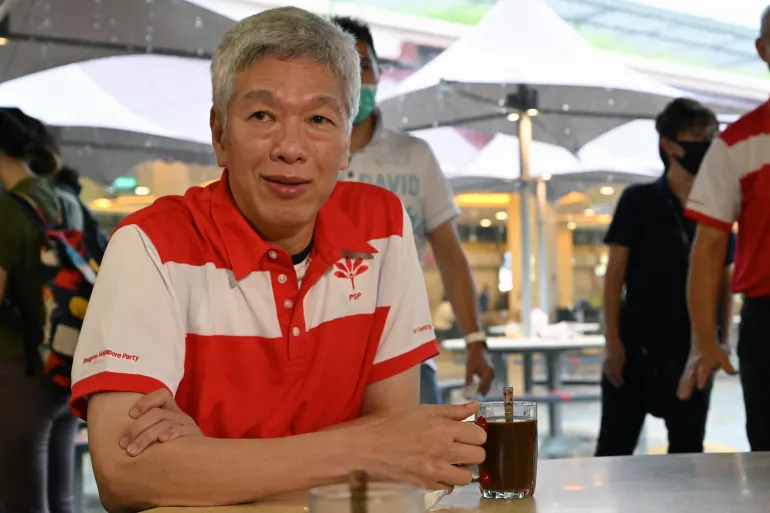
The youngest son of Singapore’s late founding father has declared that he is now a political refugee in the United Kingdom, marking the latest development in the high-profile feud within the city-state’s most prominent family.
Lee Hsien Yang said on Tuesday that the UK government granted him asylum from what he described as “persecution” at home.
Lee and his sister Lee Wei Ling, who died on October 9, have for years been estranged from influential elder brother Lee Hsien Loong, who was prime minister for two decades until May this year. The rift centred around disagreements over the fate of their father’s home following his death in 2015.
The frayed relationship has played out publicly, with the younger Lee, 67, aligning himself with an opposition party during the 2020 election and last year saying he was considering running for the Singapore presidency, a largely ceremonial post.
In a Facebook post on Tuesday, Lee Hsien Yang said that he sought asylum in 2022 “as a last resort,” which the UK granted him in August.
“The Singapore government’s attacks against me are in the public record. They prosecuted my son, brought disciplinary proceedings against my wife, and launched a bogus police investigation that has dragged on for years,” he wrote, adding that he had been unable to return home for his sister’s funeral as a result.
“On the basis of these facts, the UK has determined that I face a well-founded risk of persecution and cannot safely return to Singapore.”
Singapore’s government said the persecution claim was baseless and unfounded, ChannelNewsAsia reported.
There was no immediate comment from the UK’s government.
The Guardian published an interview with Lee Hsien Yang on Tuesday in which he strongly criticised the Singapore government and alleged it facilitated money laundering
There is a need for the world to look more closely, to see Singapore’s role as that key facilitator for arms trades, for dirty money, for drug monies, crypto money,” the newspaper quoted him as saying.
The Singapore government said in a statement that there was no basis to the allegations in the Guardian’s report. The city-state has a “robust system to deter and tackle money laundering and other illicit financial flows, which is consistent with international standards,” it said.
Lee Hsien Yang and his sister, Lee Wei Ling, have accused their eldest brother of abusing his power to stop them from demolishing the family home according to the wishes of their father, who died in 2015 after leading Singapore for more than three decades.
Lee Hsien Loong thought it should be up to the government to decide what to do with it, including potentially retaining it as a heritage landmark.
The elder Lee remains in the cabinet in the post of senior minister, a role also held by his father, who from 1959 to 1990 oversaw the city-state’s rapid rise from a British colonial backwater to a global trade and financial centre.
(Aljazeera)
-
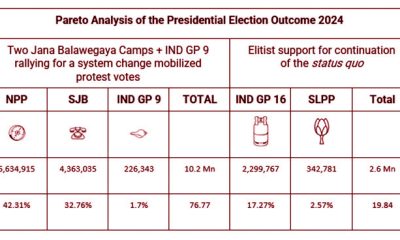
 Opinion6 days ago
Opinion6 days agoA Pareto analysis of ‘Jana Balawegaya’ force
-

 Editorial3 days ago
Editorial3 days agoProbe reports, skewed logic and emerging threats
-
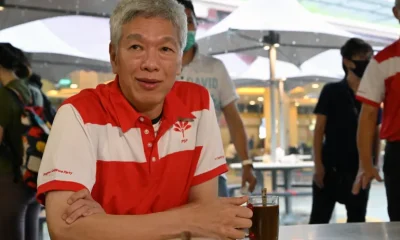
 Foreign News4 days ago
Foreign News4 days agoLee Hsien Yang, youngest son of Singapore founder, claims asylum in the UK
-
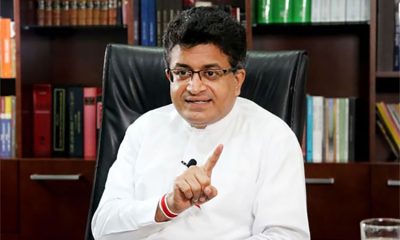
 News2 days ago
News2 days agoGammanpila challenges Minister Herath over allegations against former judge
-

 Sports2 days ago
Sports2 days agoSri Lanka riding high on an impressive run
-

 Editorial2 days ago
Editorial2 days agoAcid test of leadership
-
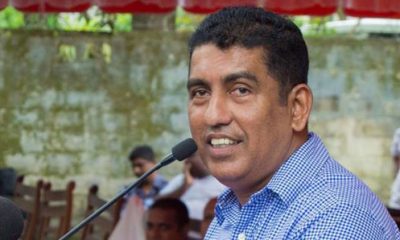
 News2 days ago
News2 days agoIllegally assembled Johnny’s BMW bears engine & chassis numbers of car stolen in England in 2021 – Police
-

 Features6 days ago
Features6 days agoRelevance of a neutral foreign policy











